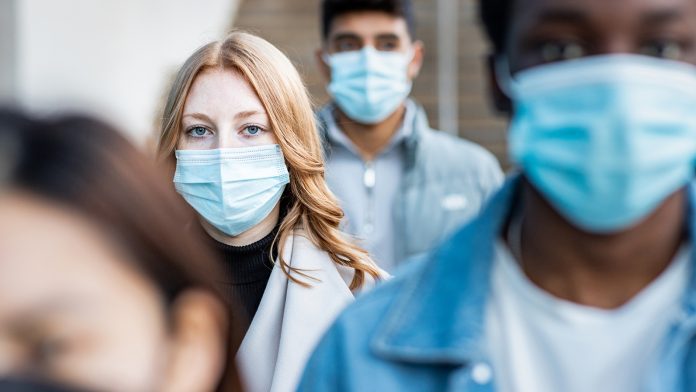
A new report has found that a healthy diet and avoiding the news led to reduced anxiety and depression during COVID.
In a report by the European College of Neuropsychopharmacology, researchers have found that a healthy diet and avoiding the news had a positive effect on anxiety and depression levels during COVID. A preliminary finding about diet was published in early 2022 and the final findings were presented at the ECNP conference in Vienna.
Dr Joaquim Radua led the team of Barcelona-based researchers who compared the effects of various activities on anxiety and depression levels during COVID. He said: “We saw, of course, that the COVID-19 pandemic increased anxiety and depressive symptoms in the population. Health bodies recommended several behaviours to cope with them, but no studies had followed the effect of these behaviours on anxiety and depressive symptoms over time; there was no real evidence of how much they work. So, we decided to test what worked best”.
Anxiety and depression during COVID
Anxiety and depression are both mental health conditions. During the COVID pandemic, both feelings of anxiety, depression and other mental illnesses became more prominent as people felt worried towards catching COVID, having to stay indoors and having minimal interactions with friends and family.
The researchers followed 942 Spanish adults for one year. Every two weeks, the volunteers rated the frequency of ten selected coping behaviours and noted their levels of anxiety and depression. Following the year, the researchers analysed which behaviours at a given time were associated with lower levels of anxiety and depression in the subsequent four weeks.
Certain lifestyles reduced the risk of poor mental health
The researchers found that some behaviours noted in the report were associated with better anxiety and depression during the COVID pandemic. This included a healthy diet, avoiding news updates, physical exercise, staying outdoors, and drinking water. Surprisingly, the researchers found that behaviours that they would assume would be beneficial, had a small effect. This included talking to relatives or friends or following a hobby.
Dr Radua said: “This was a little surprising. Like many people, we had assumed that personal contact would play a bigger part in avoiding anxiety and depression during stressful times. The relationships between behaviours and symptoms were difficult to tease out because we were looking at what happens over time rather than just at a single moment of analysis. For example, in a previous pilot study, we found that those who followed a hobby showed less anxiety and depression. However, we did not know whether people first do hobbies and then feel relaxed/happy. Or conversely, people first feel relaxed/happy, and then these feelings make them follow hobbies. We wondered if, rather than the hobbies preventing depression, we were seeing that those who get depressed give up their hobbies. We also needed to correct the effect of past symptoms on future symptoms”.
He continued: “This shows what makes this study unique: it is based on evidence gathered over a long follow-up. We think it’s important that people continue to follow what works for them and that if you enjoy seeing friends or following a hobby, you continue to do so. However, on the basis of these results, we recommend that everybody follows a healthy/balanced diet, avoids watching stressful news too often, spends more time outdoors, does relaxing activities, and does physical exercise. Our work was centred on COVID, but we now need to see if these factors apply to other stressful circumstances. These simple behaviours may prevent anxiety and depression, and prevention is better than cure”.










